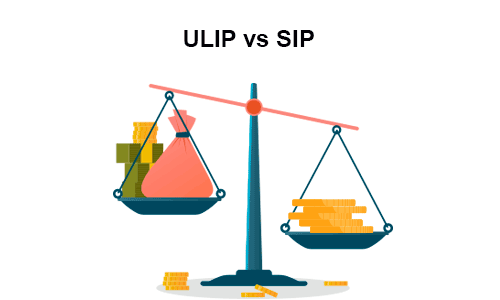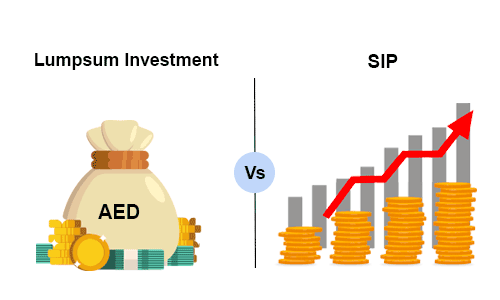Equity vs Debt Mutual Funds
Mutual funds are a popular way to invest your money. In India, you can find various types of mutual funds offering different benefits and risks.
At a basic level, mutual funds can be categorised into two main types — equity and debt mutual funds. Owing to their popularity, one can often find equity vs debt mutual fund debates as well!
Equity mutual funds invest in shares of companies. They have the potential for high returns but also come with higher risks. On the other side, debt mutual funds invest in bonds and other fixed-income securities, providing more stable returns but usually at a lower growth rate.
Table of Content
Choosing between them depends on one's financial goals and risk tolerance. In this article, we will highlight the equity vs debt mutual funds differences to help you make an informed decision about where to invest your money.
Deciphering Equity Mutual Funds
Equity mutual funds are popular investment options in India. These funds allow you to put money in companies that have shares available for buying or selling. These shares can be from both listed and unlisted companies.
Here are some key features and benefits of Equity Mutual Funds -
- Direct Ties to Stock Market Performance: The returns on equity mutual funds are linked to how well the stock market does. This means factors like company performance, government policies, and general market conditions can influence the fund's returns.
- Higher Potential for Growth: Equity mutual funds often invest in big companies with a high market value. As these companies have potential for growth, these funds can offer higher returns compared to debt funds. This can be beneficial for those who are looking for growth over a longer period, perhaps for retirement.
- A Long-Term Investment Choice: Given their growth potential, equity mutual funds are a good choice for long-term investors. Although they might see ups and downs in the short term, they generally grow over time.
- Better Returns Than Some Alternatives: When compared to options like term deposits or debt funds, equity mutual funds can often offer better returns.
- Some Level of Risk: It's important to remember that with the potential for higher returns comes higher risk. The value of these funds can go up and down based on various market factors.
Decoding Debt Mutual Funds
Debt mutual funds are another kind of mutual fund. Instead of investing in company shares like equity funds, they put money in debt tools. These include bonds, government papers, and treasury bills.
Here's a simple breakdown of their features and benefits -
- Stable Returns: Debt mutual funds give steady returns on your money. Even after taking out costs, there's a certain return that you can expect.
- Safety First: These funds are seen as safer than equity funds. This is because they invest in government or company debts which usually promise a fixed return. For those who don't like too much risk, debt mutual funds are often a top choice.
- Expenses and Management: Debt funds might cost a bit less to manage than equity funds. This is because they usually require fewer check-ups to manage risks compared to equity funds.
- Lower Returns but Steady: While they might not offer returns as high as equity funds, they give steadier and more predictable gains.
Equity vs Debt Mutual Funds – An Overview
When deciding where to invest your money, it's crucial to understand the differences between the options available. In this section, we compare equity vs debt mutual funds across various parameters.
| Parameters | Equity Funds | Debt Funds |
|---|---|---|
| Investments |
|
|
| Returns | These funds typically offer higher returns over the long term compared to debt funds. | The returns from debt funds are generally low to moderate when compared to equity funds. |
| Risk Appetite | Suitable for investors with a moderately high to high risk tolerance | Best suited for investors with a low to moderate risk tolerance |
| Expense Ratio | Equity funds usually have a higher expense ratio as they require active management. | Debt funds, in contrast, often have a lower expense ratio compared to equity funds. |
| Timeframe | Market volatility can influence equity funds, making investment timing crucial in the short term. | For debt funds, the investment duration or the maturity of the underlying assets is more significant than the timing. |
| Investment Duration | They are ideal for long-term financial objectives. | Debt funds can range from very short-term (like 1 day) to many years, serving as alternatives to traditional savings methods. |
| Taxation |
|
|
| Tax Benefits | Equity-Linked Savings Scheme (ELSS) mutual funds provide a tax deduction of up to INR 150,000 per year. | Debt funds do not offer direct tax-saving benefits like ELSS. |
Which One is Better – Equity or Debt Mutual Fund?
Deciding between an equity mutual fund and a debt mutual fund can be challenging, as both come with their own set of benefits and risks. The best choice depends on your financial goals, risk tolerance, and investment horizon.
Given below are some points to consider when making your decision -
| Aspects | Features |
|---|---|
| Risk Tolerance |
|
| Investment Timeframe |
|
| Financial Goals |
|
| Tax Efficiency |
|
| Liquidity Needs |
|
| Expense Ratio |
|
Summing Up
When considering the equity vs debt mutual fund debate, it's important to remember that both forms of investment can play a crucial role in a balanced and diversified portfolio. Each type of mutual fund serves a different purpose and meets different investor needs.
To grow your capital over a long period, equity mutual funds may be the right choice for you. On the other hand, if you seek to save your capital while earning steady returns, debt mutual funds may be more suitable.
As mentioned earlier, the ‘right’ choice between an equity and debt mutual fund depends on your specific financial goals, risk tolerance, and investment horizon. For those who can handle the ups and downs of the market and desire capital growth, equity funds may be the way to go. In contrast, debt funds are often seen as a safer alternative, providing more predictable returns over time.

More From Investment
- Recents Articles
- Popular Articles





.jpg)











.jpg)
.jpg)

















